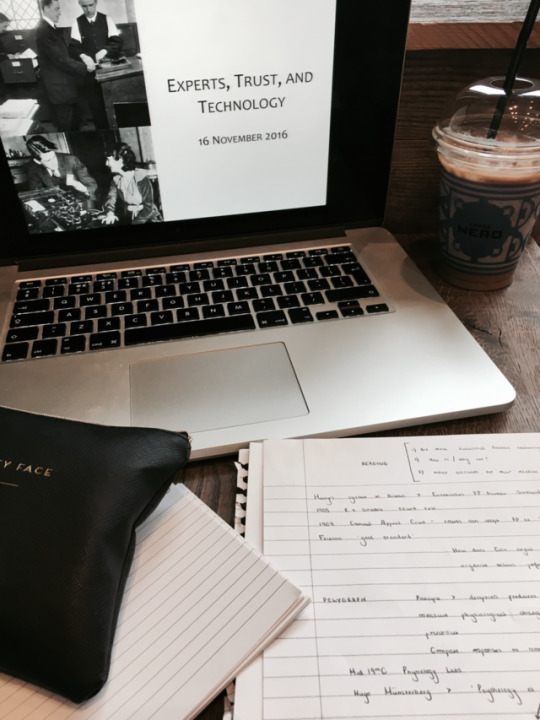Text
“The more light you allow within you, the brighter the world you live in will be.”
— Shakti Gawain
948 notes
·
View notes
Photo

Franklin Field in Philadelphia as seen in 1923.
“Deemed by the NCAA as the oldest stadium still operating for football, it was the site of the nation’s first scoreboard in 1895, the nation’s first stadium with an upper deck of seats in 1922, and was the site of the first radio broadcast of a football game in 1922 on WIP and the first television broadcast of a football game by Philco. From 1958 until 1970, the stadium was the home field of the Philadelphia Eagles of the National Football League.” (wikipedia)
These days Franklin Field hosts sporting events for the University of Pennsylvania. Photo from Old Photos of Philadelphia fb page.
257 notes
·
View notes
Photo


Exams start next week and the uni library is so full that I’ve had to come to a coffee shop instead. I can’t wait for my forensics exam to be over 💀 (three more days)
6K notes
·
View notes
Text
“Don’t call it a dream. Call it a plan.”
— Unknown
2K notes
·
View notes
Text
Strategies to Pass Upper-level College Courses
After passing 2 semesters of organic chemistry and a semester of biochemistry at Penn, I think it's safe to say that I took away a few strategies for studying and actually performing well in upper level science courses. Keep in mind that neuroscience is my college major, so these chem courses were a big struggle but I managed to score above average on most of exams/ quizzes. Also keep in mind, these strategies may not work for everyone, so listen to what your gut tells you-- to each their own!
Strategy 1: Record your lectures
We live in an age where technology is literally at our fingertips, so why wouldn't you take advantage of what you have? Record your lectures! Let's be real, if you have a 9am chemistry lecture, chances are your mind is going to drift off a time or two. Instead of stressing about trying to write everything down and missing key points, record the lecture. By doing this you can listen to the lecture later without distraction, and if you don't understand something you have the entire lecture at your disposal. Also, if your professor talks a million miles an hour, you can slow down the audio. Really guys, this hack is a game changer.
Strategy 2: Transcribe
This hack is my personal favorite, but it is definitely not for everyone. It takes patience. It takes motivation. It takes a venti coffee and an abundance of snacks… You need to transcribe your lectures. Now I am not saying you have to type every word your professor mentions (although I did do that), but you need to type the key points. I know that some people might find this a little time consuming, but this is what is going to help you a TON during finals. Think about it... during finals week are you really going to remember anything your professor mentioned during the 2nd week of classes? Probably not. If you do this you will literally have all of your teacher's main points written on paper and you won't need to watch/listen to any lectures. It's a wonderful feeling, I promise.
Strategy 3: Don’t read the text
This hack is a little risky, but I think it's worth it. Don't waste your time reading the assigned textbook, especially for a chemistry or science course. These courses are so challenging that most teachers only expect you to know the information that was mentioned in class. If you need the textbook for clarification about a topic discussed in lecture, then by all means read the textbook! But don't spend hours reading a chapter with information that your professor is not going to cover. The textbook is supplemental and it should be used to supplement lecture. It is not meant to replace lecture.
Strategy 4: Use powerpoint
This hack only applies if your professor uses pdf or power-point lectures in class. If so, you should 100% type your notes on power-point. The reason I say this is because when you go to review your notes it will be so much easier to see what topic your notes are referring to because you'll have your professors slides right there. Chances are the slides contain valuable information that will be on the exams, so reviewing the slides at the same time as your written notes will ensure you are covering all your bases and reviewing all testable material. If your professor uses pdfs, just use smallpdf.com to convert the file-- it's fast and totally free.
Strategy 5: Save notes on your computer
I understand that some professors swear off computers in the classroom, so they may not always be an option for students to use during lecture. I don't know about you, but by the middle of the semester my papers are scattered around my house, lost, and/or accidentally thrown away. So to solve this issue I've been using a scanner app to import my notes to my computer. This means you have the best of both worlds! You can write your notes, highlight, and doodle, but you can keep everything organized in one folder on your desktop. If you're really feeling fancy you can even upload the files to google drive so you can access them from any computer! This hack makes me feel like Monica Geller from friends and I am obsessed.
I know that none of these hacks discuss actually studying strategies, but these are the hacks that made studying so much less of a hassle for me during college. Try them out and let me know your thoughts. As always, feel free to message me with any questions!
Cheers!
#Columbia University#university of pennsylvania#notes#study#study movitation#study tips#study hacks#life hacks#school hacks#school advice#college advice#university#Oxford University#student#strategies & tips#study advice#tips#tips and tricks
73 notes
·
View notes
Photo

1 note
·
View note
Text
Applying To College
Applying to college can be super stressful if you don’t have much guidance or support, but I’m here to help :D
For my college application I was required to write 2 essay in addition to submitting a common application, transcript, and at least two letters of recommendation. Here are my tips for completing an application, whether it be for admission to a university, job opportunity, or volunteer position.
1.) Before you dive head first into the application process, learn about the institution/organization inside-out. It’s best to apply once you have a general sense about their missions, core values, and even history. Why? For one, it helps you decide if this is really the right decision for you and also it will come in handy in your essays. That is, admission directors want to make sure that your a good fit and that your actually interested in the institution and not solely interested in another line on your resume.
2.) Visit if possible! Everything looks better in pictures, but visiting a school or job site on a rainy, dull day will really tell you if this is the place for you. Also, this is great to mention in your application ;)
3.) Once you’re positive with your decision to apply, a major key is to link your experiences and ideas with the institutions within your written pieces to show how they overlap. Don’t pretend to be someone your not, because it will come across in your application as disingenuous. Write honestly and from true experience.
4.) I HIGHLY recommend scheduling a practice interview, even if the application process doesn’t require you to participate in an interview. First of all, this is a great life experience to have under your belt. So many people think they can just wing an interview but it’s not nearly that simple. You only get one first impression so you want to make it count. Chances are you already know the types of questions you will be asked. (Why do you want to go to this school? What do you consider your biggest achievement? What extracurriculars are you involved in?) You want to show that you’ve mulled over these questions prior to the interview and you want to give meaningful, truthful answers. Blank stares and “ums” are a no-go people.
5.) For the real interview wear professional attire. Dress, skirts, pants, blouses, slacks, button ups, and school uniforms are all perfect choices. Don’t chew gum and don’t play with your hair. Just remember its just a conversation and it’ll be over before you know it. A great tip is to bring a portfolio or notebook to the interview-- bullet the main points/facts about you that you want to get across and lay the portfolio in front of you during the interview. This will ensure that even if you get a little flustered you have notes to refer to.
Remember that these organizations are looking at you as an entire person, they don’t rely on one factor for their decision. As and perfect SAT scores are nice but being a open-minded, well-rounded person is more important. My last and most important piece of advice is to put a positive spin on EVERYTHING. So, if your asked a question that your not prepared to answer (ex. what clubs do you plan to join here), just smile and say “I’m not really sure right now, but I’m excited to find out!” :)
#school#application#university#job application#school applications#ivy league#advice#applying to college#interview#penn#upenn#university of pennsylvania#harvard#columbia university#yale university#oxford university#cambridge#hogwarts#harry potter#hermione granger#study tips#studytips
1 note
·
View note

